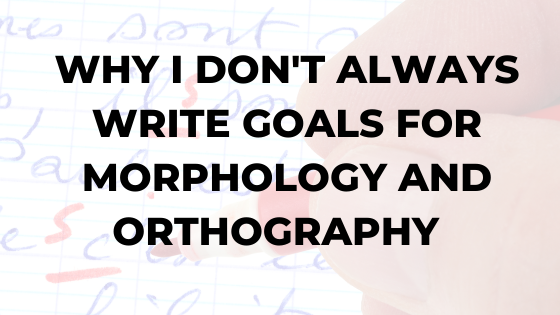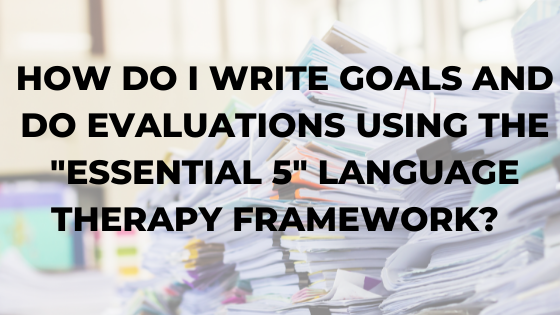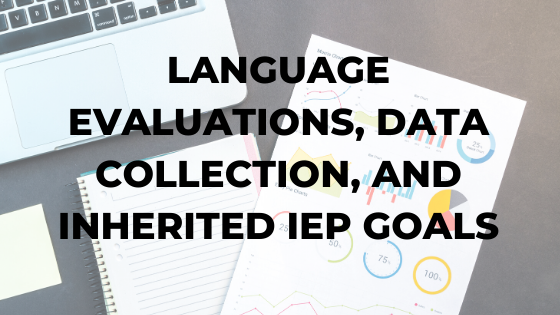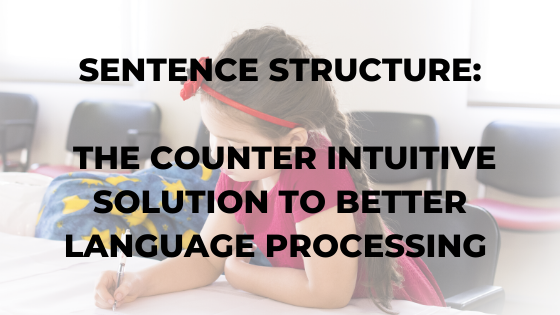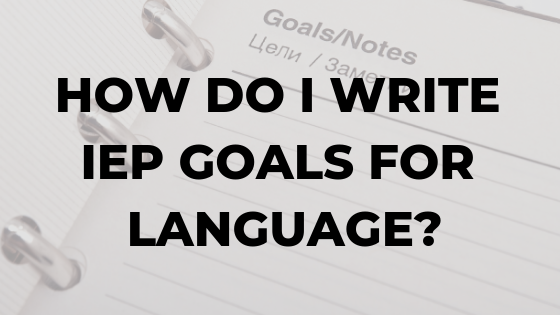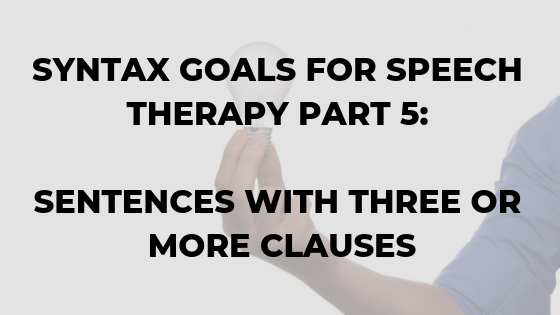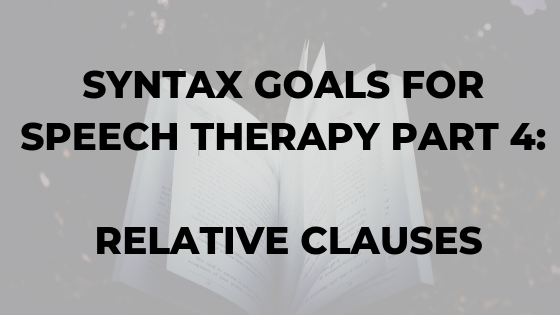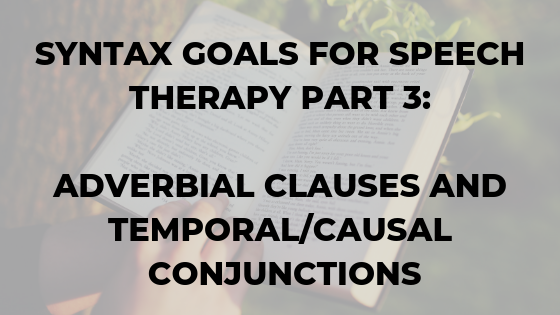Writing goals for executive functioning can be challenging because it’s very hard to quantify. Additionally, because executive functioning impacts almost every functional skill we engage in, almost every goal on any IEP or therapy plan is technically an executive functioning goal. When we’re focusing on other areas such as writing, reading, math, language, or other…
Category: IEP Goal Bank Hacks for SLPs
Goals for language can be the most difficult type of goals to write. In this section, I show you how to write goals that are appropriate for your students’ skill level, aligned with curricular standards, and easy to track.
Why I don’t always write goals for morphology & orthography
I talk a lot about how important it is to emphasize morphology & orthography. So naturally, people want to know how to write goals for these things. But in some cases, I don’t recommend writing a goal for it. In this Q & A video about language therapy goals, I explain why: To learn more…
How do I write goals and do evaluations using the “Essential 5” language therapy framework?
How do I write goals and do evaluations using the “Essential 5” language therapy framework? This is a common question I get about the system I teach to help SLPs systematically boost their students’ academic language, processing, and comprehension skills. So that’s why in this video, I answer some common FAQs, like: How do I…
Language evaluations, data collection, and inherited IEP goals
What do you do when you inherit an IEP from another SLP and you aren’t sure if the goals are appropriate? What happens if you decide to shift the focus of your language therapy before the IEP is due? These questions have come up in our member’s FB group for Language Therapy Advance Foundations, as…
Sentence structure: The counter intuitive solution to better language processing
If you struggle to find an effective way to boost language processing, you’re going to want to check out the video below I used to feel like I was jumping around from skill to skill in therapy. Wh questions… Following directions… Verb tenses… Grammar worksheets… Stating the main idea… The list went on and on….
Free E-Book: The Ultimate Guide to Sentence Structure
Tired of wondering how to treat “processing” problems? Do you wish someone would give you a roadmap to show you exactly what to do next? I know I use to feel that way. That’s why I wrote this free e-book for you, The Ultimate Guide to Sentence Structure: The SLP’s Roadmap to Language Comprehension and Expression. If…
How do I write IEP goals for language?
How do I write IEP goals for language? This is a question asked all the time among groups for SLPs. With the massive laundry lists of language skills we often think we need to address, it can be a daunting task. That’s why earlier this year, I published a 5-post series about how to write…
Syntax Goals for Speech Therapy Part 5: Sentences with Three or More Clauses
Welcome to the final installment of the Syntax Goals for Speech Therapy series, where I break down how to write the best speech therapy goals for syntax that focus on high-priority skills to build listening and reading comprehension. In this article series, I’ve broken down four challenging sentence types and how to target them (described…
Syntax Goals for Speech Therapy Part 4: Relative Clauses
Welcome to the fourth installment of the Syntax Goals for Speech Therapy, where I’m breaking down difficult sentence types so you can walk away with an IEP goal bank for syntax and a set of solid syntax activities for speech therapy. The inspiration to write this series came from the constant questions I get about…
Syntax Goals for Speech Therapy Part 3: Adverbial Clauses and Temporal/Causal Conjunctions
This is the third installment in Syntax Goals for Speech Therapy, where I’ll be giving you some sentence structure goals for speech therapy. In the first part, I shared a “base goal” for syntax that defines the “big idea” and ensures that you have a goal you can measure. In the second article, I talked…

